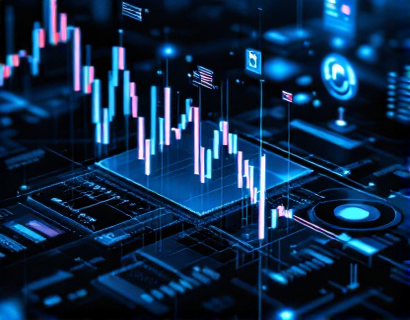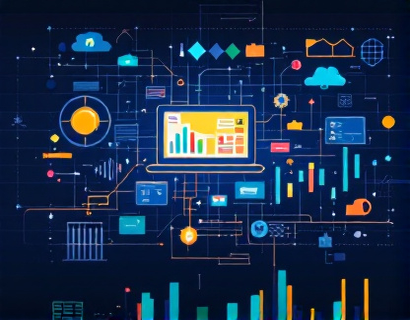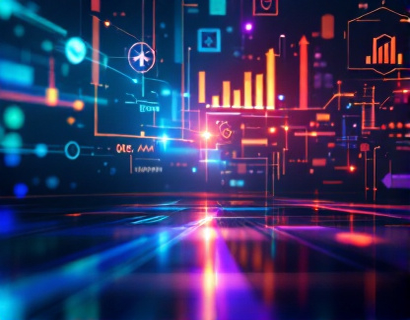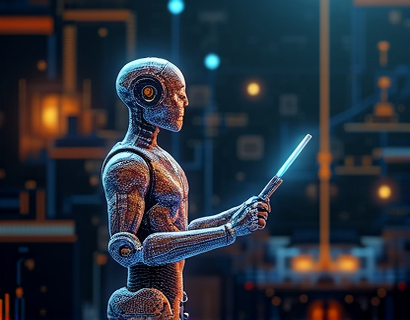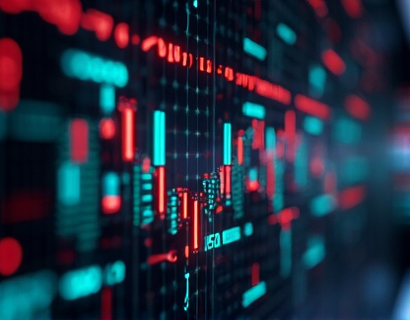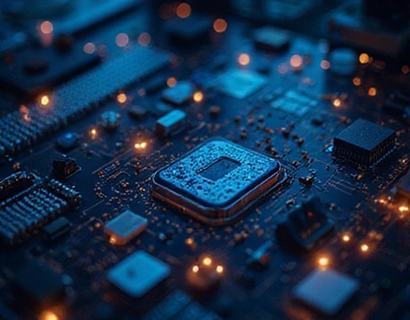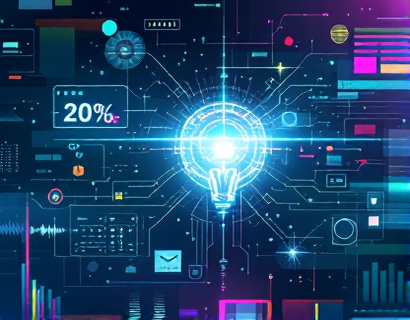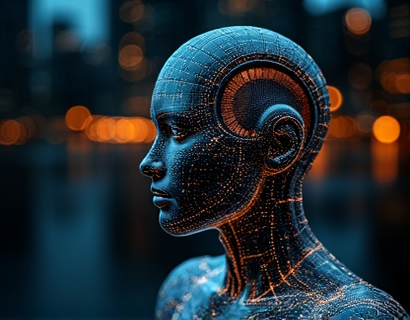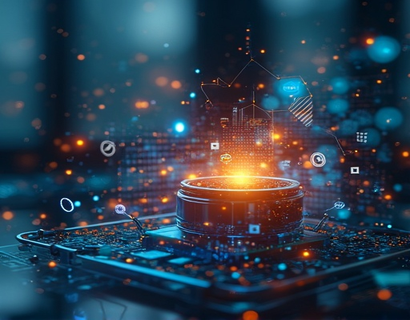Revolutionizing Digital Finance: The Synergy of AI and Crypto
The intersection of artificial intelligence (AI) and cryptocurrency is ushering in a new era of digital finance, characterized by enhanced security, improved user experiences, and unprecedented efficiency. This transformative synergy is not just a buzzword but a reality that is reshaping the tech and finance landscapes. As we delve into this topic, it's essential to understand the foundational technologies and their individual impacts before exploring how they complement each other to create smart solutions.
Foundations of AI and Cryptocurrency
Artificial intelligence, a branch of computer science, focuses on creating systems that can perform tasks requiring human intelligence, such as learning, reasoning, and self-correction. AI technologies include machine learning, natural language processing, and computer vision, each playing a crucial role in various applications. On the other hand, cryptocurrency, exemplified by Bitcoin, is a digital or virtual currency that uses cryptography for security and operates on a decentralized network, typically a blockchain.
Cryptocurrency's decentralized nature eliminates the need for intermediaries, reducing transaction costs and increasing transparency. However, the lack of central control also introduces challenges such as scalability, security, and regulatory compliance. AI addresses these challenges by providing advanced tools for data analysis, fraud detection, and system optimization.
Enhancing Security with AI
One of the most significant benefits of integrating AI into cryptocurrency is the enhancement of security measures. Traditional security methods often struggle to keep pace with sophisticated cyber threats. AI, with its ability to analyze vast amounts of data in real-time, can detect and respond to anomalies more effectively. Machine learning algorithms can identify patterns indicative of fraudulent activities, such as unusual transaction volumes or suspicious login attempts, and trigger alerts or automated responses to mitigate risks.
Moreover, AI can improve the security of blockchain itself. Smart contracts, self-executing contracts with the terms directly written into code, can be enhanced with AI to include self-auditing mechanisms. These mechanisms continuously monitor the contract's execution and environmental conditions, ensuring compliance and preventing malicious activities. This proactive approach to security is crucial in a space where trust is paramount.
Optimizing Blockchain Performance
Blockchain technology, while revolutionary, faces scalability issues due to its inherent design. Each transaction must be verified by network participants, leading to slower processing times and higher fees as the network grows. AI can optimize blockchain performance by predicting network congestion and dynamically adjusting parameters to maintain efficiency. For instance, AI algorithms can optimize the selection of nodes for transaction validation, ensuring that the most reliable and fastest nodes are chosen, thereby reducing transaction times and costs.
Additionally, AI can enhance consensus mechanisms, the processes by which transactions are verified and added to the blockchain. Proof of Work (PoW), the consensus mechanism used by Bitcoin, is energy-intensive and slow. AI-driven solutions can explore and implement more efficient consensus algorithms, such as Proof of Stake (PoS) or Delegated Proof of Stake (DPoS), by simulating various scenarios and predicting outcomes to find the optimal balance between security and efficiency.
Personalized User Experiences
The integration of AI in cryptocurrency also revolutionizes user experiences by providing personalized services. Natural language processing (NLP) enables chatbots and virtual assistants to understand and respond to user queries in a human-like manner. These AI-powered assistants can guide users through complex processes, provide real-time market insights, and offer tailored investment advice based on individual preferences and risk tolerance.
Furthermore, AI can analyze user behavior and preferences to recommend relevant products and services. For example, a cryptocurrency exchange can use AI to suggest specific coins or trading strategies based on a user's past activities and market trends. This level of personalization not only enhances user satisfaction but also increases engagement and loyalty.
Fraud Detection and Compliance
Fraud and regulatory non-compliance are significant concerns in the cryptocurrency space. AI plays a pivotal role in addressing these issues by implementing advanced monitoring and compliance systems. Machine learning models can analyze transaction patterns and user behavior to identify potential fraudulent activities, such as money laundering or market manipulation. These systems can operate 24/7, providing continuous surveillance and reducing the risk of human error.
AI also aids in regulatory compliance by automating the reporting and documentation processes required by various financial authorities. Smart contracts, enhanced with AI, can ensure that transactions adhere to specific regulatory rules, automatically adjusting operations to comply with changing regulations. This not only streamlines compliance but also reduces the administrative burden on cryptocurrency businesses.
Market Prediction and Trading
AI's ability to process and analyze vast amounts of data makes it an invaluable tool for market prediction and trading. By leveraging historical data, news feeds, social media sentiment, and other relevant sources, AI algorithms can identify trends and patterns that human analysts might miss. This predictive capability allows traders to make more informed decisions, potentially increasing their returns and reducing risks.
Automated trading bots, powered by AI, can execute trades based on predefined strategies and real-time market data. These bots can operate around the clock, executing trades at optimal times and adjusting strategies based on market conditions. This level of automation not only enhances trading efficiency but also reduces emotional biases that can lead to suboptimal decisions.
Decentralized Finance (DeFi) Innovations
The convergence of AI and cryptocurrency is particularly impactful in the realm of Decentralized Finance (DeFi). DeFi platforms aim to provide traditional financial services on blockchain networks, offering transparency, accessibility, and lower costs. AI enhances DeFi by introducing smart, adaptive financial products and services.
For instance, AI-driven lending platforms can assess creditworthiness more accurately by analyzing a broader range of data points, including non-traditional credit history. This allows for more inclusive financial services, extending credit to individuals who might be overlooked by traditional systems. Additionally, AI can optimize yield farming strategies, automatically reallocating assets to maximize returns while managing risk.
Challenges and Considerations
While the integration of AI and cryptocurrency offers numerous benefits, it also presents challenges that must be addressed. One major concern is the ethical use of AI, particularly in ensuring fairness and transparency. AI algorithms can inadvertently perpetuate biases present in the training data, leading to unfair outcomes. It is crucial to develop and implement AI systems that are transparent, explainable, and auditable to build trust and ensure ethical standards.
Another challenge is the regulatory landscape. As AI and cryptocurrency continue to evolve, regulators are grappling with how to oversee these technologies. Clear and adaptive regulations are necessary to foster innovation while protecting consumers and maintaining financial stability. Collaboration between technologists, policymakers, and industry stakeholders is essential to create a balanced regulatory framework.
Future Prospects
The future of AI and cryptocurrency is bright, with ongoing advancements promising even more innovative solutions. The development of quantum computing, for example, could revolutionize both fields by solving complex problems that are currently intractable. Quantum AI could enhance cryptographic security, optimize blockchain operations, and provide unprecedented computational power for market analysis and trading.
Moreover, the integration of AI with other emerging technologies, such as the Internet of Things (IoT) and 5G networks, will further expand the potential applications of this synergy. Smart contracts could automate a wider range of processes, from supply chain management to smart cities, creating a more interconnected and efficient digital world.
In conclusion, the fusion of AI and cryptocurrency is not just a technological trend but a fundamental shift in how we approach digital finance. By leveraging the strengths of both domains, we can create smarter, more secure, and more user-friendly financial systems. As this synergy continues to evolve, it will undoubtedly play a pivotal role in shaping the future of technology and finance.




